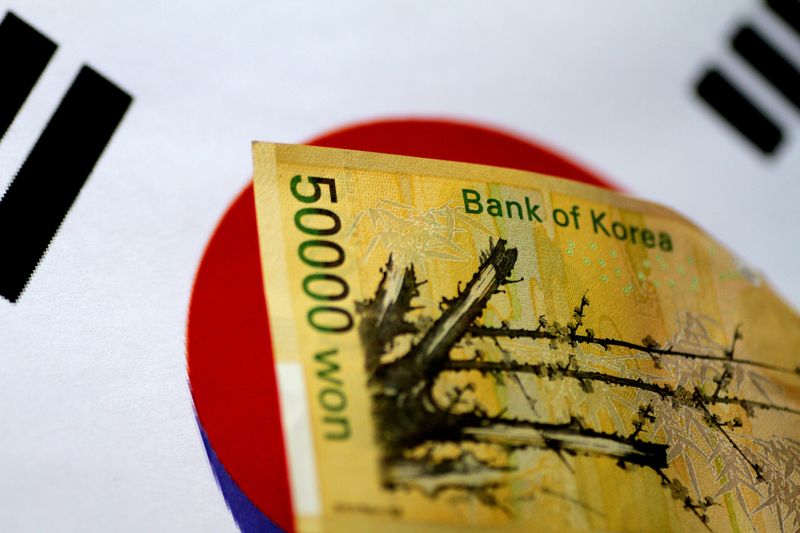By Choonsik Yoo
SEOUL (Reuters) -South Korea's won fell more than 1% on Thursday, ending below a key psychological level for the first time in 13-1/2 years, as the U.S. Federal Reserve continued to aggressively raise interest rates, pressuring emerging market currencies.
Defying official warnings from policymakers in Seoul against sharp currency moves, the won fell as much as 1.4% at one point.
It ended down 1.1% at 1,409.7 per dollar, marking the first time it ended weaker than the 1,400-won level since mid-March 2009. Every 100-won mark is considered psychologically important in South Korea.
Selling intensified despite warnings of action by both the finance ministry and the central bank against excessive currency movements and media reports that the authorities were seeking to introduce measures to ease dollar demand in the local market.
The won's fall came mainly as the U.S. dollar surged to a fresh two-decade high overnight after the U.S. Federal Reserve raised interest rates by another 75 basis points and signalled more large increases to come.
The South Korean currency has now lost more than 15% of its value against the dollar so far this year mainly on greenback strength but also due to a deteriorating trade balance, making it one of the worst performers among its peers.
The finance minister vowed at a meeting of officials early on Thursday to introduce measures to ease pressure on the won, while local media reported the central bank and the national pension fund could form a currency swap.
He did not elaborate. Local media reported late on Wednesday that the central bank and national pension fund were considering forming a currency swap so that the pension fund can meet some of its dollar demand without buying in the market.

Both the Bank of Korea and the National Pension Service declined to comment on the reports.
Later in the day, Yonhap news agency quoted a senior presidential official as saying in New York that U.S. and South Korean leaders have agreed to examine cooperation for financial stability in South Korea, including a bilateral currency swap.